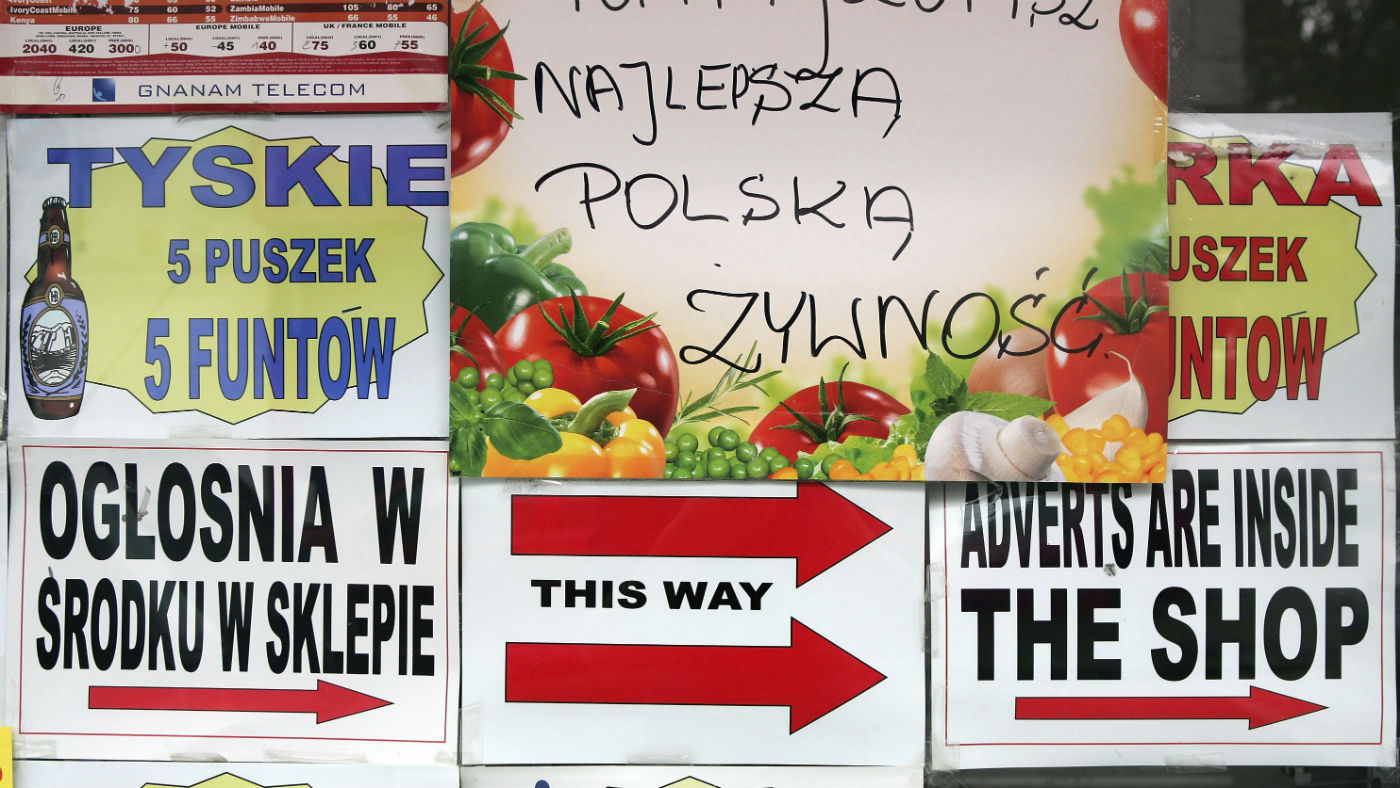Will Brexit lead to an exodus of Polish workers?
Poland's prime minister says he wants to see more workers return from the UK to help its domestic economy grow

A free daily email with the biggest news stories of the day – and the best features from TheWeek.com
You are now subscribed
Your newsletter sign-up was successful
Britain is facing an exodus of Polish workers, as uncertainty over Brexit combined with a strong economy in Poland lures people back to their homeland.
Official figures last autumn revealed more people from EU8 countries, which include Poland, Hungary and the Czech Republic, left the UK than arrived last year: the first time there has been a net departure since those countries joined the EU in 2004.
Anti-Brexit campaigners say the drop in net migration from eastern European member states is part of a “Brexodus” caused by uncertainty over Brexit.
The Week
Escape your echo chamber. Get the facts behind the news, plus analysis from multiple perspectives.

Sign up for The Week's Free Newsletters
From our morning news briefing to a weekly Good News Newsletter, get the best of The Week delivered directly to your inbox.
From our morning news briefing to a weekly Good News Newsletter, get the best of The Week delivered directly to your inbox.
Now Poland's prime minister says he wants to see even more workers return from the UK to help its domestic economy grow, telling the BBC “give us our people back”.
Speaking at the World Economic Forum in Davos, Mateusz Morawiecki cited the low level of unemployment and 5.5% GDP growth as reasons to return.
There are nearly one million Polish nationals living in the UK, by far the highest number of any EU member state.
“Polish-British trade is worth more than $20 billion a year” claims Forbes, and the country “has been critical of the way the EU has handled the Brexit negotiations”, says the BBC’s business editor Simon Jack.
A free daily email with the biggest news stories of the day – and the best features from TheWeek.com
Earlier this week, Poland’s Foreign Minister Jacek Czaputowicz suggested that the Irish backstop should be time-limited to five years, a move “seen by many in the UK as a crack in the solidarity of the EU27's negotiating position”, says Jack.
The UK government has long viewed the large Polish diaspora as an ace card and hoped to use the fear of a no-deal Brexit to prompt the government in Warsaw to pressure the EU into adopting a softer line in the negotiations.
Yet the EU27 has remained remarkably united over the two-and-half years since the Brexit vote.
But even with guarantees their rights will be protected post-Brexit, economic considerations and an increasingly hostile atmosphere after the referendum has led many to conclude the time has come to leave the UK.
Madeleine Sumption, the director of the Migration Observatory at Oxford University, says: “The UK has clearly become a less attractive country for EU migrants since the referendum.”
“The lower value of the pound means that workers coming here for higher wages are getting less than they were in the past, and economic conditions in many of the key EU countries of origin have improved a lot over the past few years. Uncertainty about the implications of Brexit may have played a role,” she added.
-
 Why is the Trump administration talking about ‘Western civilization’?
Why is the Trump administration talking about ‘Western civilization’?Talking Points Rubio says Europe, US bonded by religion and ancestry
-
 Quentin Deranque: a student’s death energizes the French far right
Quentin Deranque: a student’s death energizes the French far rightIN THE SPOTLIGHT Reactions to the violent killing of an ultraconservative activist offer a glimpse at the culture wars roiling France ahead of next year’s elections
-
 Secured vs. unsecured loans: how do they differ and which is better?
Secured vs. unsecured loans: how do they differ and which is better?the explainer They are distinguished by the level of risk and the inclusion of collateral
-
 How corrupt is the UK?
How corrupt is the UK?The Explainer Decline in standards ‘risks becoming a defining feature of our political culture’ as Britain falls to lowest ever score on global index
-
 The high street: Britain’s next political battleground?
The high street: Britain’s next political battleground?In the Spotlight Mass closure of shops and influx of organised crime are fuelling voter anger, and offer an opening for Reform UK
-
 Biggest political break-ups and make-ups of 2025
Biggest political break-ups and make-ups of 2025The Explainer From Trump and Musk to the UK and the EU, Christmas wouldn’t be Christmas without a round-up of the year’s relationship drama
-
 ‘The menu’s other highlights smack of the surreal’
‘The menu’s other highlights smack of the surreal’Instant Opinion Opinion, comment and editorials of the day
-
 Is a Reform-Tory pact becoming more likely?
Is a Reform-Tory pact becoming more likely?Today’s Big Question Nigel Farage’s party is ahead in the polls but still falls well short of a Commons majority, while Conservatives are still losing MPs to Reform
-
 Taking the low road: why the SNP is still standing strong
Taking the low road: why the SNP is still standing strongTalking Point Party is on track for a fifth consecutive victory in May’s Holyrood election, despite controversies and plummeting support
-
 Russia: already at war with Europe?
Russia: already at war with Europe?Talking Point As Kremlin begins ‘cranking up attacks’ on Ukraine’s European allies, questions about future action remain unanswered
-
 Is Britain turning into ‘Trump’s America’?
Is Britain turning into ‘Trump’s America’?Today’s Big Question Direction of UK politics reflects influence and funding from across the pond